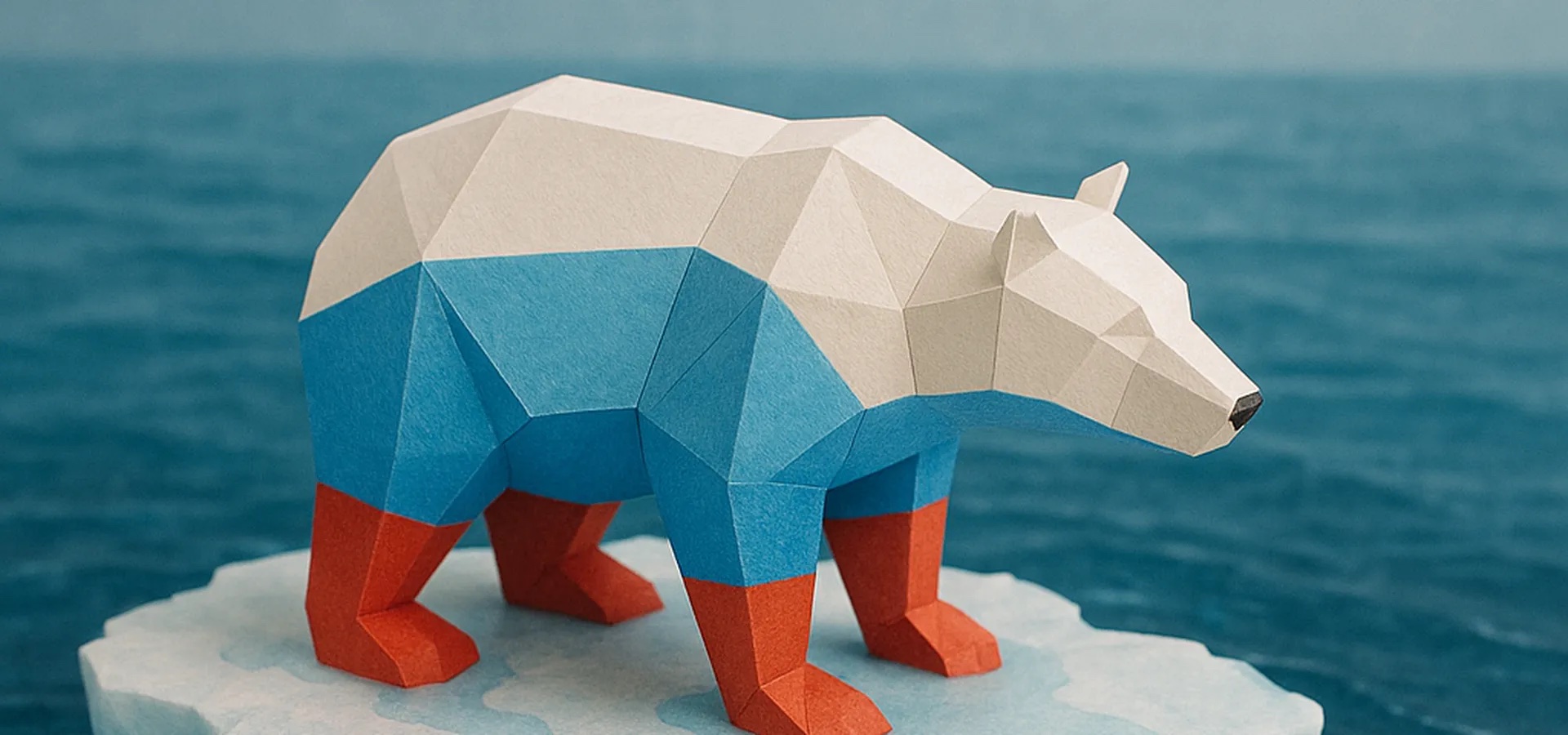Russia Is a Paper Bear
Pekka Kallioniemi, The Baltic Sentinel,

By ending energy dependence and backing Ukraine fully, the EU can outmatch Moscow.
For decades, the Kremlin has worked hard to cultivate an image of Russia as a great power, a menacing bear whose shadow looms over Europe. But strip away the propaganda, and the reality looks far less impressive. Russia is a paper bear. Its power rests not on economic strength or demographic vitality, but on intimidation, brutality, and the West’s hesitation to act decisively.
Consider the numbers. By nominal GDP, Russia’s economy is roughly the same size as Italy’s. Its entire output is just a fraction of the European Union’s, which is nearly nine times larger. Russia has little to show in terms of technological innovation or high-value industries, relying instead on fossil fuels and raw materials. Sanctions have deepened its isolation, forcing it to trade at a discount with China and India, while much of the world quietly turns away.
Meanwhile, Moscow has sabotaged its own future by sacrificing close to a million soldiers killed or wounded in Ukraine, according to estimates from CSIS. Hundreds of thousands of men either dead or severely wounded. And even the surviving ones are permanently traumatized by the brutality of this genocidal war. This is a social and demographic catastrophe. Russia already faced a shrinking, aging population, with a fertility rate well below replacement and a life expectancy that fell after the pandemic. Now, with war, exile, and repression layered on top, its future workforce is collapsing. The supposed great power is bleeding itself dry.
And yet, Russia manages to project power not because it is strong, but because Europe is divided. When the EU acts in fragments, Moscow exploits hesitation and fear. But when the EU is united, its strength is overwhelming. Economically, militarily, technologically, and diplomatically, a united Europe is vastly more powerful than Russia could ever hope to be. The challenge is not whether we can match Moscow, but whether we have the political will to act together.
Europe has already shown what unity can achieve. In 2022, many feared that cutting off Russian gas would cripple European economies. Instead, the EU diversified its energy supply faster than anyone predicted, slashed its dependence on Russian oil and coal, and accelerated the green transition. Russia hoped to freeze Europe into submission. Instead, Europe adapted, Moscow lost its most lucrative markets — and now it’s them facing gas shortages. That lesson should embolden us: when we act together, we win.
That unity also requires listening to those who know Russia best. In addition to Ukraine, the EU must pay serious attention to the voices of the Baltics, Nordics, and Central and Eastern Europe like Poland or Czechia. These nations understand, from history and proximity, the nature of the threat. We know what it means to live under Russian aggression or occupation, and we recognize the patterns of disinformation, coercion, and military posturing for what they are. Too often, our warnings were dismissed as alarmism. Now would be a good time to start taking them seriously.
Ukraine has already demonstrated that Russia can be stopped. The Kremlin expected Kyiv to fall in days; instead, Ukrainian resistance has destroyed much of Russia’s modern military equipment, exposed its corruption, and shown the world that the “second strongest army in the world” is, in reality, barely the second strongest in Ukraine. At some point it was even joked about as the second in Russia, when the state-funded terrorist army Wagner easily occupied Rostov-on-Don and was marching on to Moscow. Backed by Western support, Ukraine has proved that Russia is far weaker than its propaganda suggests.
Europe is at a crossroads. We can continue to let Russia’s theatrics frighten and divide us, or we can face reality. The Kremlin is weaker than it pretends, and the EU is stronger than it realizes. The first step must be to stop funding Russia’s war machine by buying its oil and gas. The second is to send Ukraine whatever it needs to repel the invader. Every tank, missile defense system, and artillery shell that helps Ukraine defend itself also strengthens Europe’s security.
And we should go further. Europe must stop reacting to Moscow’s moves and start setting the agenda ourselves. Russia thrives when we allow it to dictate the rhythm of crisis and escalation. But the truth is that Moscow no longer holds the cards. Europe, united and confident, has the resources, alliances, and political weight to lead. It is time to take the initiative back: Russia is much weaker than it seems.
